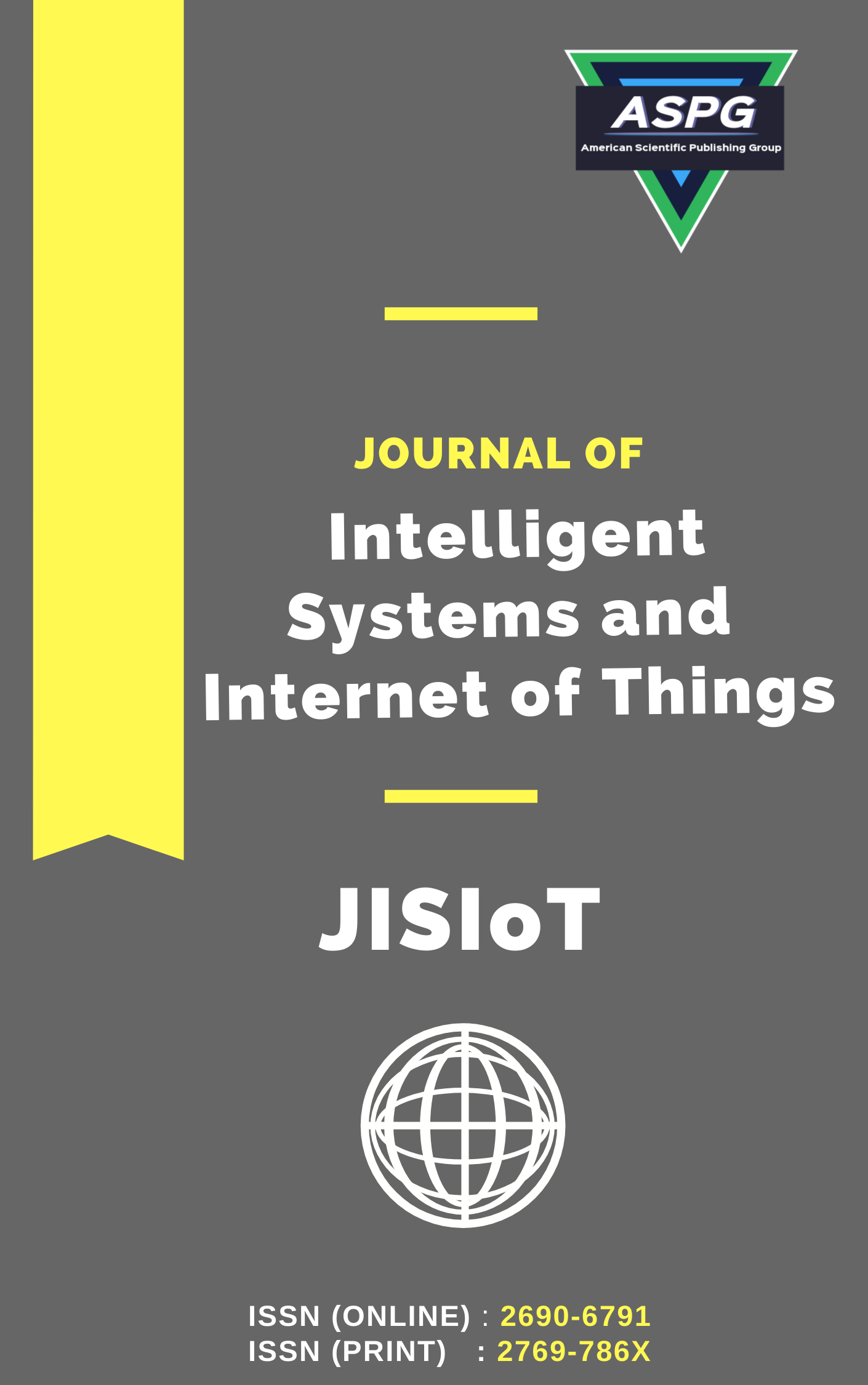

Volume 11 , Issue 1 , PP: 12-20, 2024 | Cite this article as | XML | Html | PDF | Full Length Article
Fausto Vizcaíno Naranjo 1 * , Silvio Machuca Vivar 2 , Edmundo Jalón Arias 3 , Reem Atassi 4
Doi: https://doi.org/10.54216/JISIoT.110102
In the era of smart cities, the pursuit of sustainability stands as a paramount goal, with energy management playing a central role. This paper is dedicated to the exploration of early energy consumption prediction as a linchpin in the realization of sustainable smart cities. Employing advanced long short-term memory (LSTM) networks, we introduce a potent predictive model tailored to anticipate energy consumption patterns within urban environments. Notably, our model achieves remarkable performance metrics, with a root mean square error of 547.71 and a strikingly low mean absolute percentage error (MAPE) of 1.22. Through meticulous comparisons against baseline models, our LSTM-based approach emerges as a beacon of accuracy, reliability, and sustainability. Beyond predictive analytics, our research offers actionable insights for urban planners and policymakers, fostering the creation of greener, more sustainable, and ecologically responsible smart cities that harmonize technological innovation with environmental stewardship. As smart cities continue to evolve, our work lays the foundation for a future where sustainability is not merely a goal but a reality.
Smart City Sustainability , Urban Energy Management , Predictive Analytics , Sustainable Urban Planning , Renewable Energy Integration , Data-Driven Sustainability , Resource Optimization , Sustainable Development , Green urban policies
[1] D. Gonçalves, Y. Sheikhnejad, M. Oliveira, and N. Martins, “One Step Forward toward Smart City Utopia: Smart Building Energy Management based on Adaptive Surrogate Modelling,” Energy and Buildings, vol. 223, p. 110146, 2020, doi: 10.1016/j.enbuild.2020.110146
[2] A. T. Hoang, and X. P. Nguyen, “Integrating Renewable Sources into Energy System for Smart City as a Sagacious Strategy towards Clean and Sustainable Process,” Journal of Cleaner Production, vol. 305, p. 127161, 2021, doi: 10.1016/j.jclepro.2021.127161
[3] M. Zekić-Sušac, S. Mitrović, and A. Has, “Machine Learning based System for Managing Energy Efficiency of Public Sector as an Approach towards Smart Cities,” International Journal of Information Management, vol. 58, p. 102074, 2021, doi: 10.1016/j.ijinfomgt.2020.102074
[4] A. Almadhor, K. Mallikarjuna, R. Rahul, G. Chandra Shekara, R. Bhatia, W. Shishah, and S. P. Thimothy, “Solar Power Generation in Smart Cities Using an Integrated Machine Learning and Statistical Analysis Methods,” International Journal of Photoenergy, vol. 2022, p. 5442304, 2022, doi: 10.1155/2022/5442304
[5] N. Abbasabadi, and M. Ashayeri, “Urban Energy Use Modeling Methods and Tools: A Review and an Outlook,” Building and Environment, vol. 161, p. 106270, 2019, doi: 10.1016/j.buildenv.2019.106270
[6] M. Naphade, G. Banavar, C. Harrison, J. Paraszczak, and R. Morris, “Smarter Cities and Their Innovation Challenges,” Computer, vol. 44, no. 6, pp. 32-39, 2011.
[7] S. M. Sepasgozar, “Differentiating Digital Twin from Digital Shadow: Elucidating a Paradigm Shift to Expedite a Smart, Sustainable Built Environment,” Buildings, vol. 11, no. 4, p. 151, 2021. doi: 10.3390/ buildings11040151
[8] X. Wang, Q. Chen, and J. Wang, “Fuzzy Rough Set based Sustainable Methods for Energy Efficient Smart City Development,” Journal of Intelligent and Fuzzy Systems, vol. 40, no. 4, pp. 8173-8183, 2021. doi: 10.3233/JIFS-189640
[9] W. M. da Silva, A. Alvaro, G. H. Tomas, R. A. Afonso, K. L. Dias, and V. C. Garcia, Smart Cities Software Architectures: A Survey. In: “Proceedings of the 28th Annual ACM Symposium on Applied Computing,” pp. 1722-1727, Mar. 2013.
[10] S. Elmi, and K. L. Tan. Deep FEC: Energy Consumption Prediction Under Real-world Driving Conditions for Smart Cities, In: “Proceedings of the Web Conference 2021,” pp. 1880-1890, Apr. 2021.
[11] S. Nižetić, N. Djilali, A. Papadopoulos, and J. J. Rodrigues, “Smart Technologies for Promotion of Energy Efficiency, Utilization of Sustainable Resources and Waste Management,” Journal of Cleaner Production, vol. 231, pp. 565-591, 2019. doi: 10.1016/j.jclepro.2019.04.397
[12] L. Berntzen, M. R. Johannessen, and A. Florea, Sensors and the Smart City: Creating a Research Design for Sensor-based Smart City Projects, In: “ThinkMind//SMART 2016, The Fifth International Conference on Smart Cities, Systems, Devices and Technologies,” 2016.
[13] K. G. Kim, “Development of An Integrated Smart Water Grid Model as a Portfolio of Climate Smart Cities,” Journal of Smart Cities, vol. 3, no. 1, pp. 23-34, 2019.
[14] Available from: https://transparency.entsoe.eu/dashboard/show [Last accessed on 2023 Jun 11].